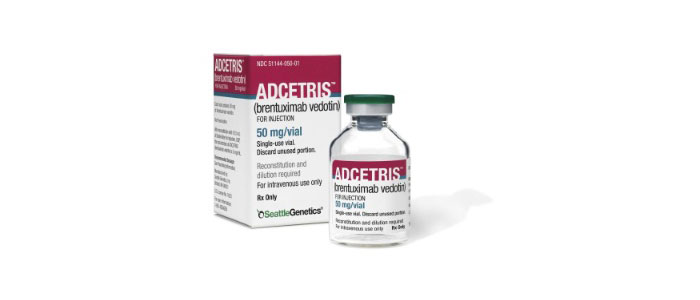The innovative drug ADCETRIS was approved for sale by Health Canada this past February.
The drug ADCETRIS may have outstanding cancer-fighting benefits, but all of this comes at a cost.
The innovative drug ADCETRIS was approved for sale by Health Canada this past February. But unfortunately not all patients can take advantage of its cancer- fighting formula for Hodgkin lymphoma (HL) since it is not yet officially funded in all provinces in Canada.
Dr. Bence-Bruckler is a hematologist and Associate Professor of Medicine at Ottawa General Hospital. “It is frustrating…when you know that there is a treatment out there that could potentially extend a life” but is not funded by all provinces.
The entire treatment is about $100,000 but most private insurance companies will not cover the cost because it is intended to be a publically funded drug.
The drug is innovative because it has an antibody that can kill cancer cells specifically (CD30-expressing cells). “Chemotherapy treatments, on the other hand,…target different cells of the body; that’s why people lose their hair, suffer infertility or experience immune diseases.”
ADCETRIS received accelerated approval from the U.S. Food and Drug Administration (FDA) in August 2011 and was granted conditional marketing authorization by the European Commission in October 2012.
It was approved based on promising response rates demonstrated in single-arm trials, but many patients are still waiting for decisions on funding. “In some provinces there is a gap in care from when a drug is approved by Health Canada and this gap is then funded by the individual province under a case by case basis,” explains Sue Robson, Executive Director, Lymphoma Canada.
Research for new drugs begins with scientists developing chemical or biological substances. According to Health Canada, the new substance is reviewed by scientists in the Therapeutic Products Directorate (TPD). After numerous tests and successful findings on tissue cultures or small animals, a company will apply to the TPD for authorization to conduct a clinical trial. If clinical trial studies prove that the drug has medical value that outweighs the risks of use, then the company may choose to file a New Drug Submission with the TPD.
“The process does take a long time,” says Bence-Bruckler.
Once the drug submission is reviewed, Health Canada will decide whether or not the drug will be authorized for use. It is then up to the individual provinces to decide whether or not they will fund the drug. Lymphoma Canada has been working with various community partners to express the impact this drug will have on Hodgkin patients across Canada and why funding is crucial. For many, this is their last hope, and it is difficult to accept that a patient’s life or death may rest on the issue of funding.






